Runkeeper: Pace Academy
A mini-training plan to improve your running pace
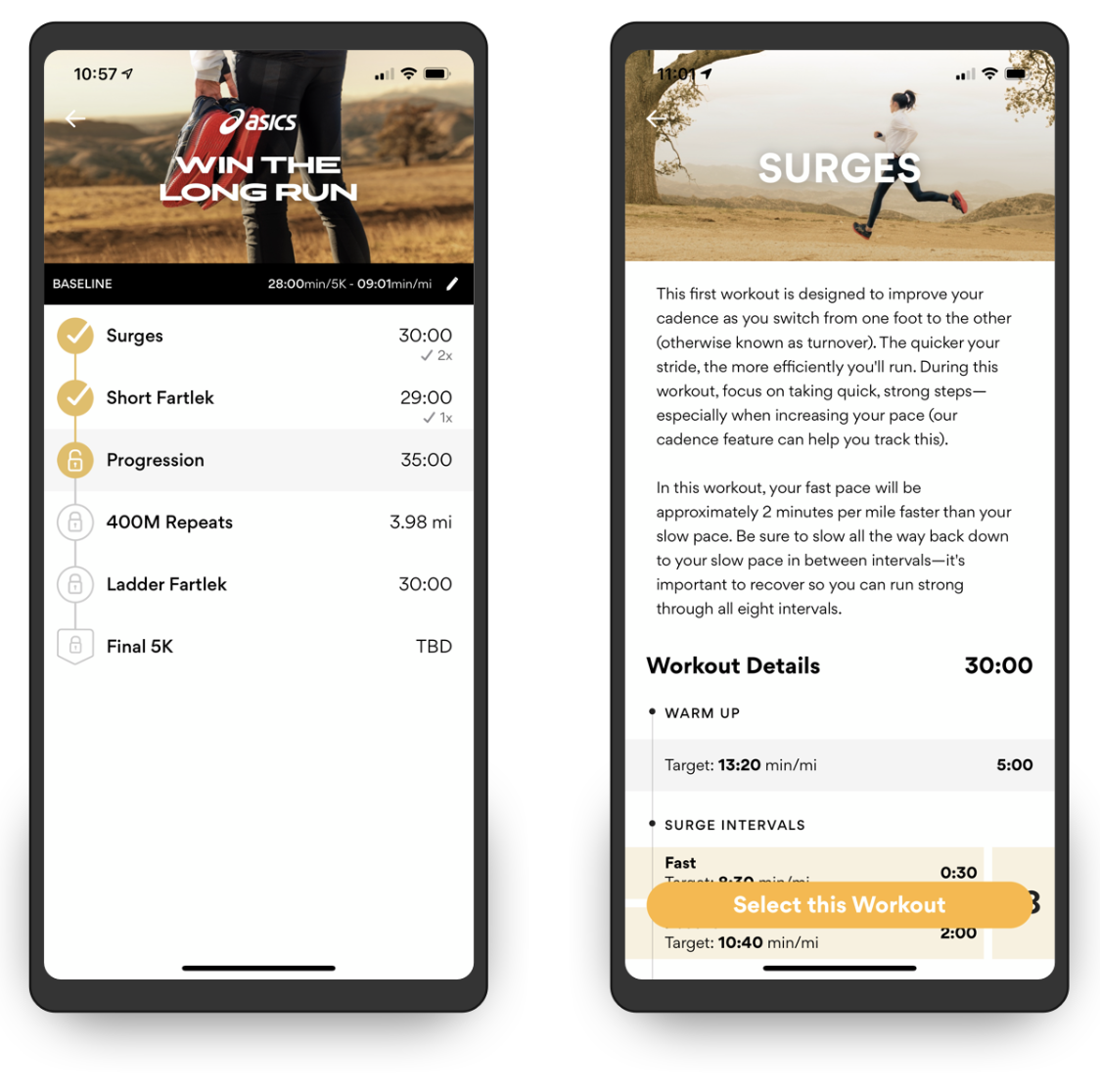 “Pace Academy” was eventually renamed to “Win the Long Run” to align with marketing goals.
“Pace Academy” was eventually renamed to “Win the Long Run” to align with marketing goals.
I collaborated with designers, product managers, engineers, marketing, and running coaches to conceptualize, design, and deliver this feature. I was the lead designer, executed all research and created the feature concept.
🤔 Problem
🎯 Goal
🧛🏻♂️ Persona
🥳 Success
🧢 My role
Project Kickoff
ASICS wanted to create their first in-app campaign to support their new Flight Foam shoe sole technology. Our marketing team reached out to see what we could do to support the effort.
Initial research
There was internal sentiment that our users were satisfied with their current running ability, so we decided to challenge that concept and run a quick survey asking if our users wanted to improve their running performance, and if so, what specifically.
Based on the survey feedback it turned out that the vast majority of our users were interested in improving their running performance, and again, the majority were specifically interested in improving their pace.
We then scheduled interviews to get some further insights into why our users wanted to get faster.
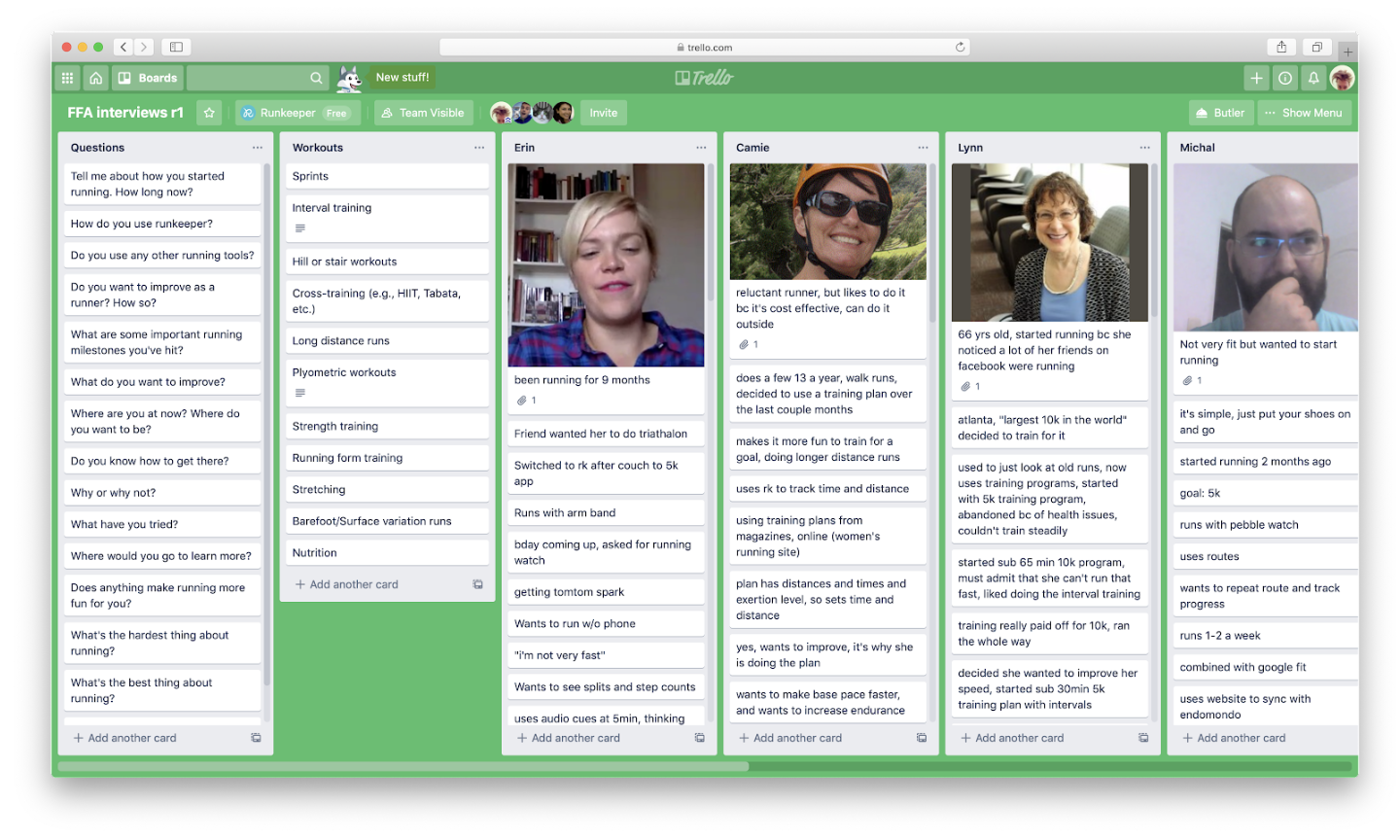
After our first round of interviews a few clear themes kept coming up. Everyone wanted to improve, but they were only competing with themselves. Pace was a personal thing, one user said it was like salary—you don’t want to share what yours is and you always want it to improve. Pace was a main metric of progress for these users.
The problem we saw our users experience here was that they weren’t sure how to improve their pace. And they also didn’t have time for a dedicated race training plan. They also weren’t doing basic speed work to improve pace either.
Concept
After synthesizing our findings, we came up with a concept of a basic speedwork training plan, that was linear, but not scheduled like a race plan. Users would have to unlock each workout to progress through the plan (a small attempt at gamifying the training).
We decided to use a common benchmark for the plan too—a 5K. We would check the user’s 5K pace before and after completing to see if they had made progress.
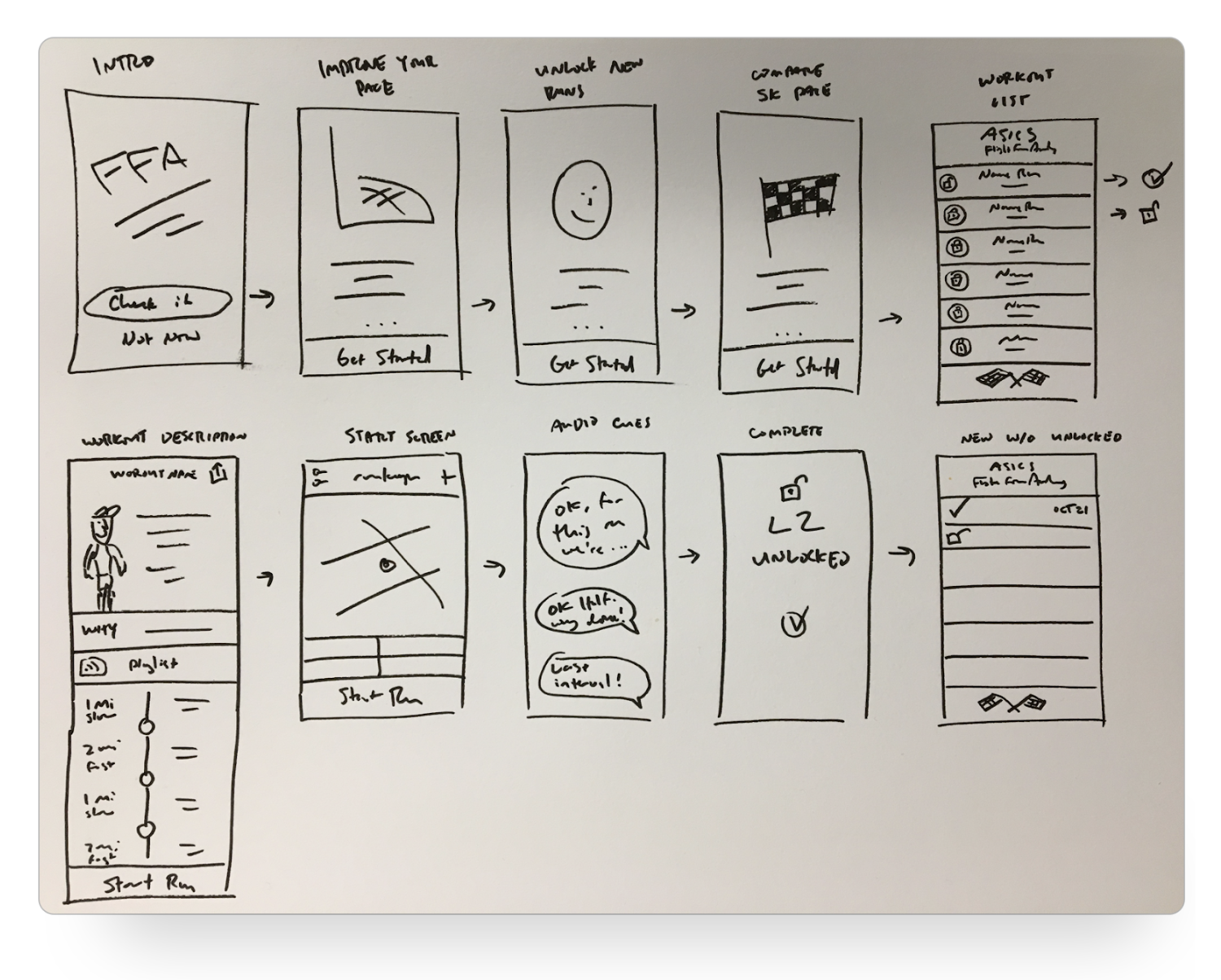
Further research
We reviewed the solution concept (in an Invision prototype) with a new set of users. We showed them the prototype and had them give us feedback on the usability and the concept.
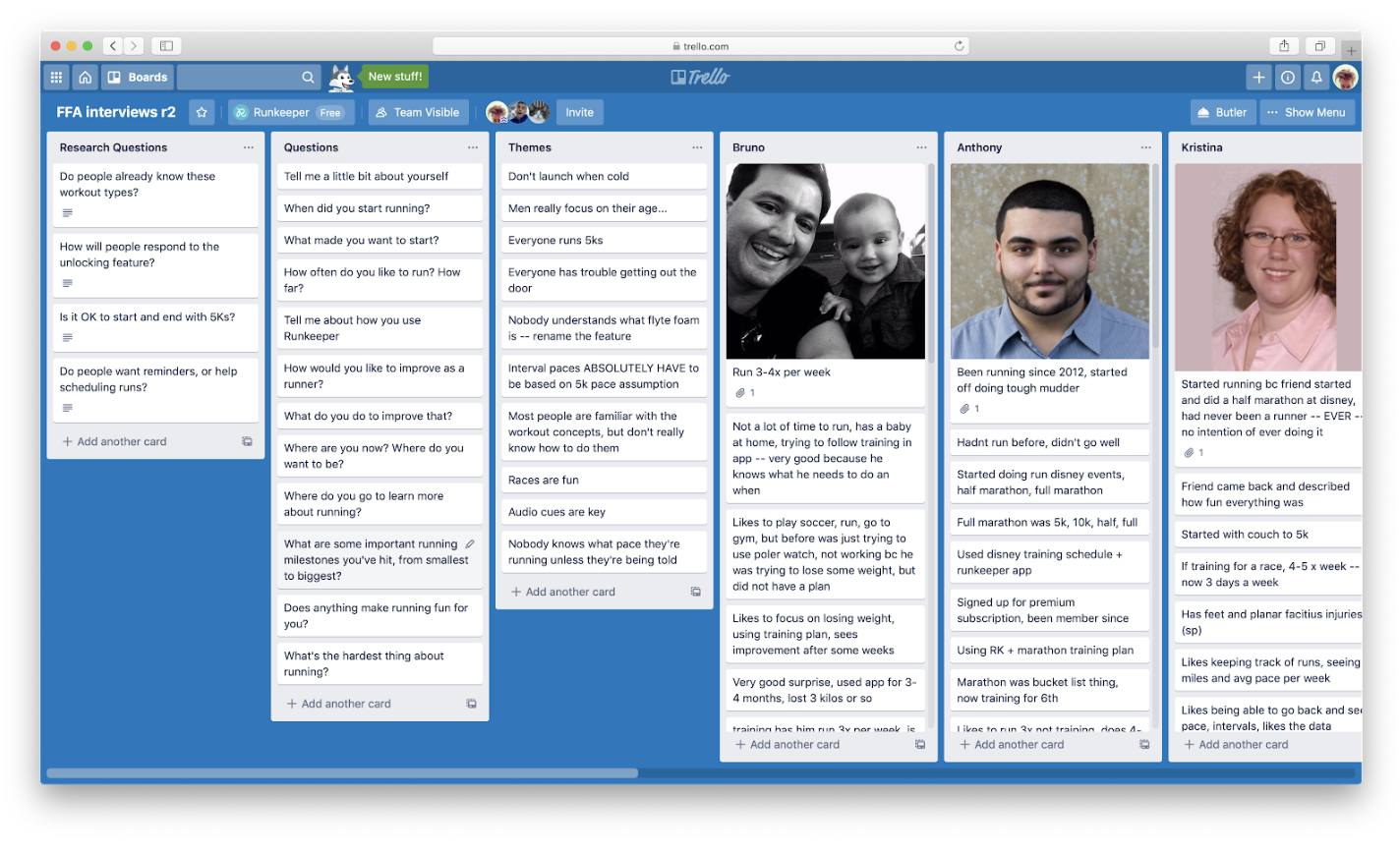
Build
We hired a running coach to create the plan framework for us. Once the plan was ready for dev, I worked with engineering to build out the solution, keeping the user in mind as we made changes or trade-offs. We had coworkers dogfooded the feature internally before release, to see if the running plans were effective.
Post-launch interviews
After the feature launched, I worked with our data team to identify two user groups to interview:
- People who completed the plan
- People who had not tried the plan but were ideal candidates
Most of the users we spoke to who had tried the plan enjoyed it and saw an improvement in their pace. Many of the users we talked to who hadn’t tried to plan yet seemed genuinely interested in trying it out based on their goals and needs.
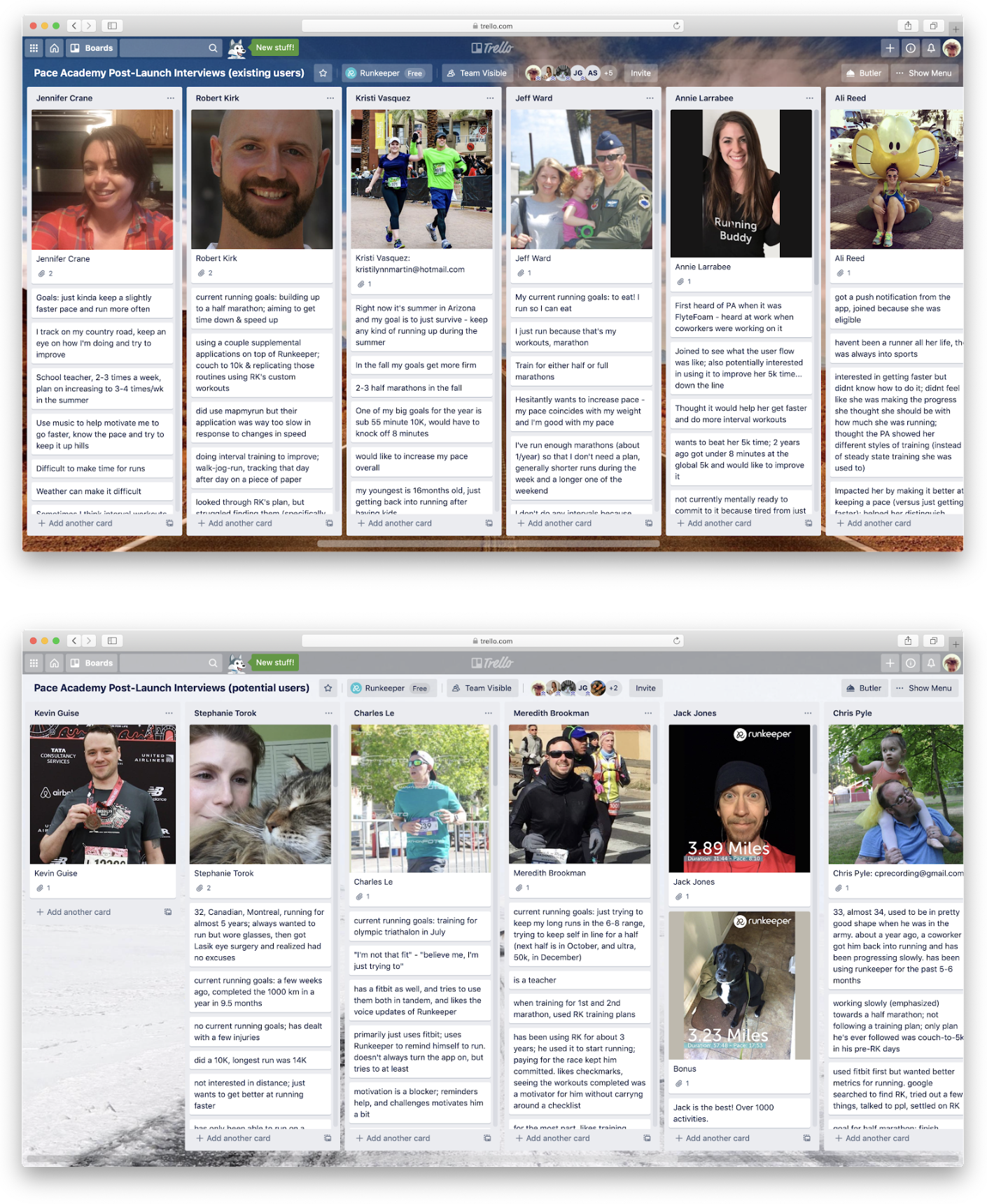
Summary
To date Pace Academy (now renamed to Win the Long Run) has over one million users signed up for it. The majority of people who finished the plan improved their pace on average.
While the feature was a success, there were still opportunities for improvement going forward. Many users not finishing the entire plan, what could we do to keep them motivated and engaged? We could explore adding in triggers to keep users progressing and cooperate with marketing to highlight offering to new and potential users.